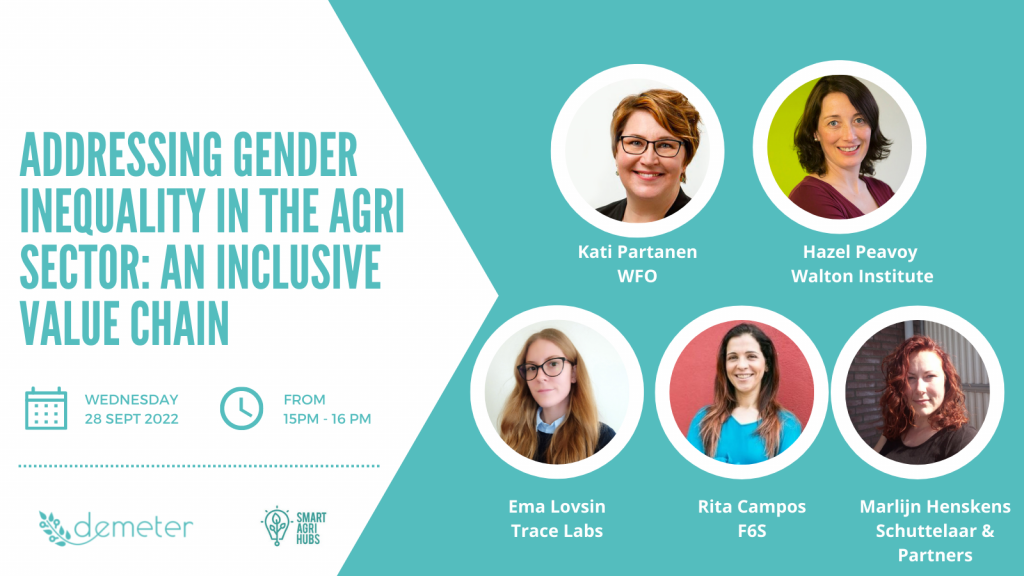
DEMETER has organised a workshop at the SmartAgriHubs final event focused on ‘Addressing gender inequality in the agri sector: an inclusive value chain’.
The challenges that the agriculture sector faces are well documented. These include environmental and economic sustainability concerns. Furthermore, there is a pressing need to attract more women and young people to the sector to combat a reduced and ageing workforce. However, currently only 28.7% of farm managers in Europe are women (Eurostat, 2016[1]). Women also have a lower adoption rate of agricultural technologies than men. The research tells us however that this is not down to gender but to gender-differentiated factors such as women owning smaller farms than men, having less access to capital, labour and resources and traditionally affected by societal land transfer practices. From a technological perspective, companies that are venture-backed and with all-male founding teams receive 93% of the capital invested, compared to 2% of funding going to all-female teams (Atomico, 2022[2]). This leads to the question, that are men designing technology for men or are women’s voices taken into account? From a research point of view, women are still under-represented in research and innovation. While there is gender balance at undergraduate and graduate level, women only hold 22% of doctoral graduates in ICT (She figures, 2021[3]).
This workshop organised by DEMETER aims to highlight these issues and find potential solutions to how we can create a more inclusive value chain in agriculture.
- Kati Partanen of the World Farmers’ Organisation discusses why we need to attract more women to agriculture and what can be done to empower women.
- Hazel Peavoy of Walton Institute and involved in several projects such as VistaMilk and SmartAgriHubs talks about her experiences of working in agri projects as well as running a farm with her husband.
- Ema Lovsin of Trace Labs talks about her experiences of being a young female working in technology.
- Rita Campos of F6S shares what more can be done to attract and encourage more female entrepreneurs.
- Marlijn Henskens of Schuttelaar & Partners discusses the work of the SmartAgriHubs gender task force and conclusions from their recent workshop.
The workshop will conclude with a discussion on how we can come together to tackle these issues collectively.


